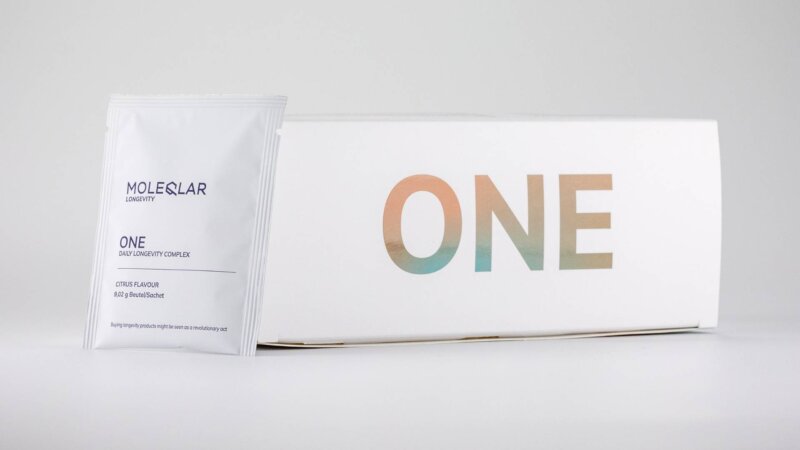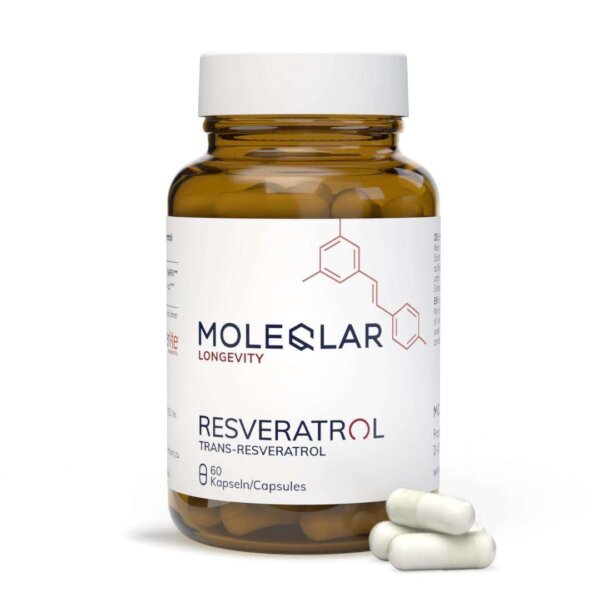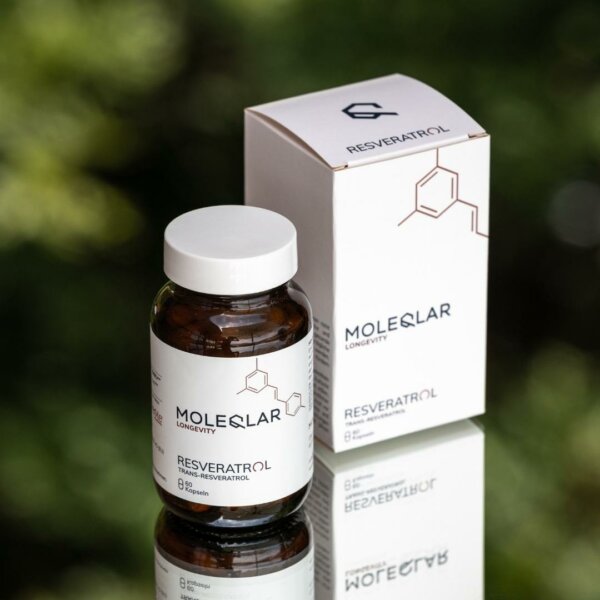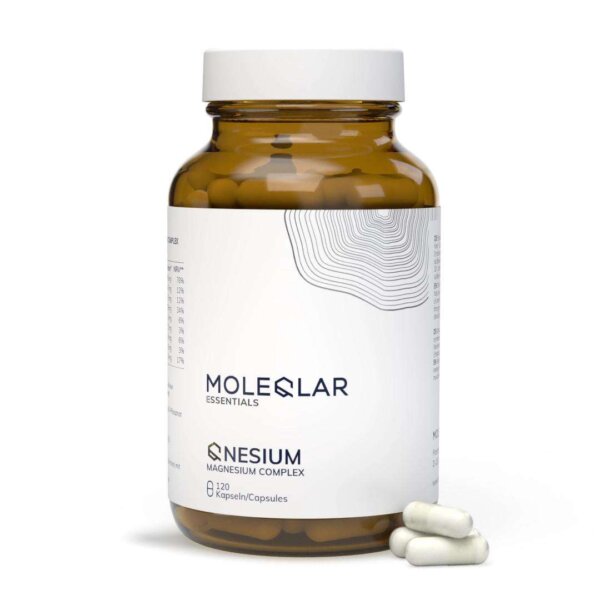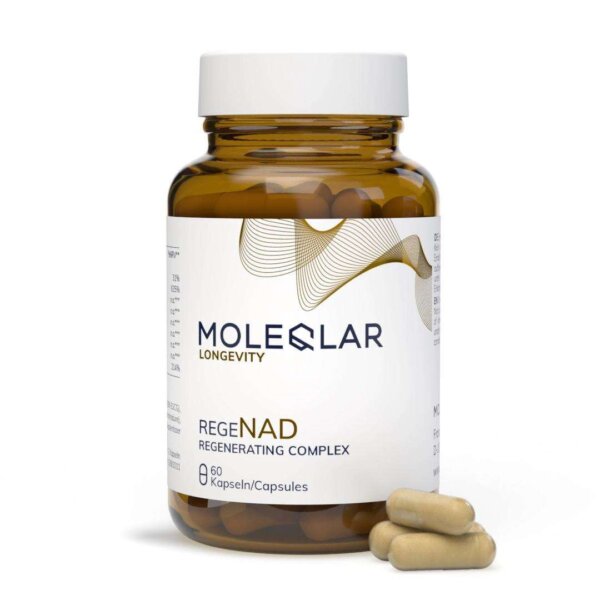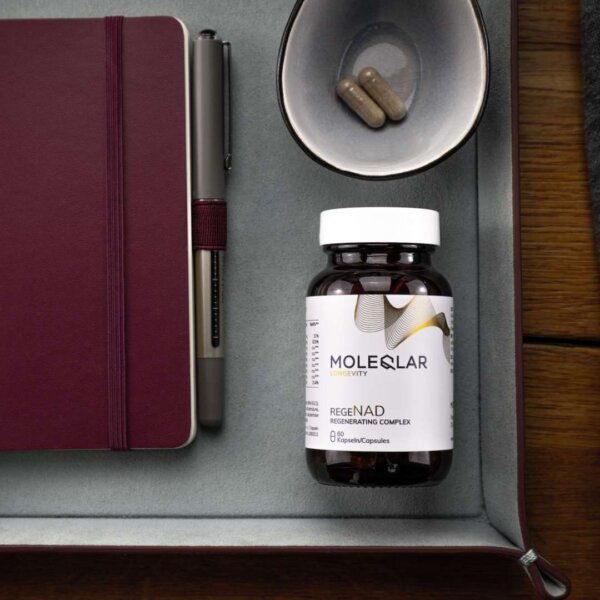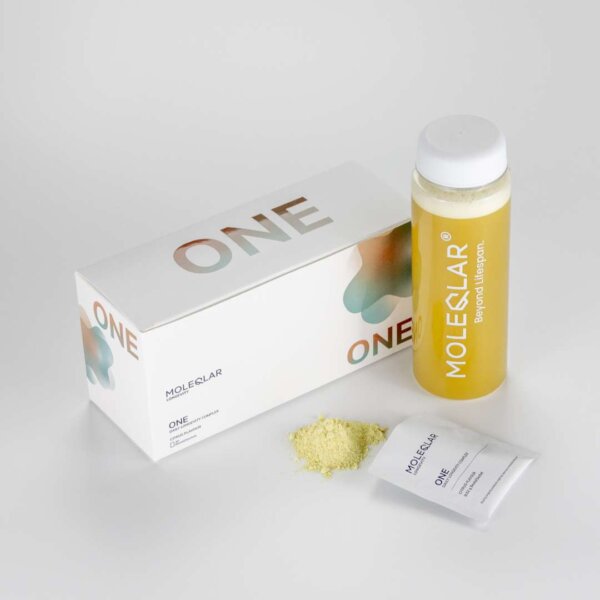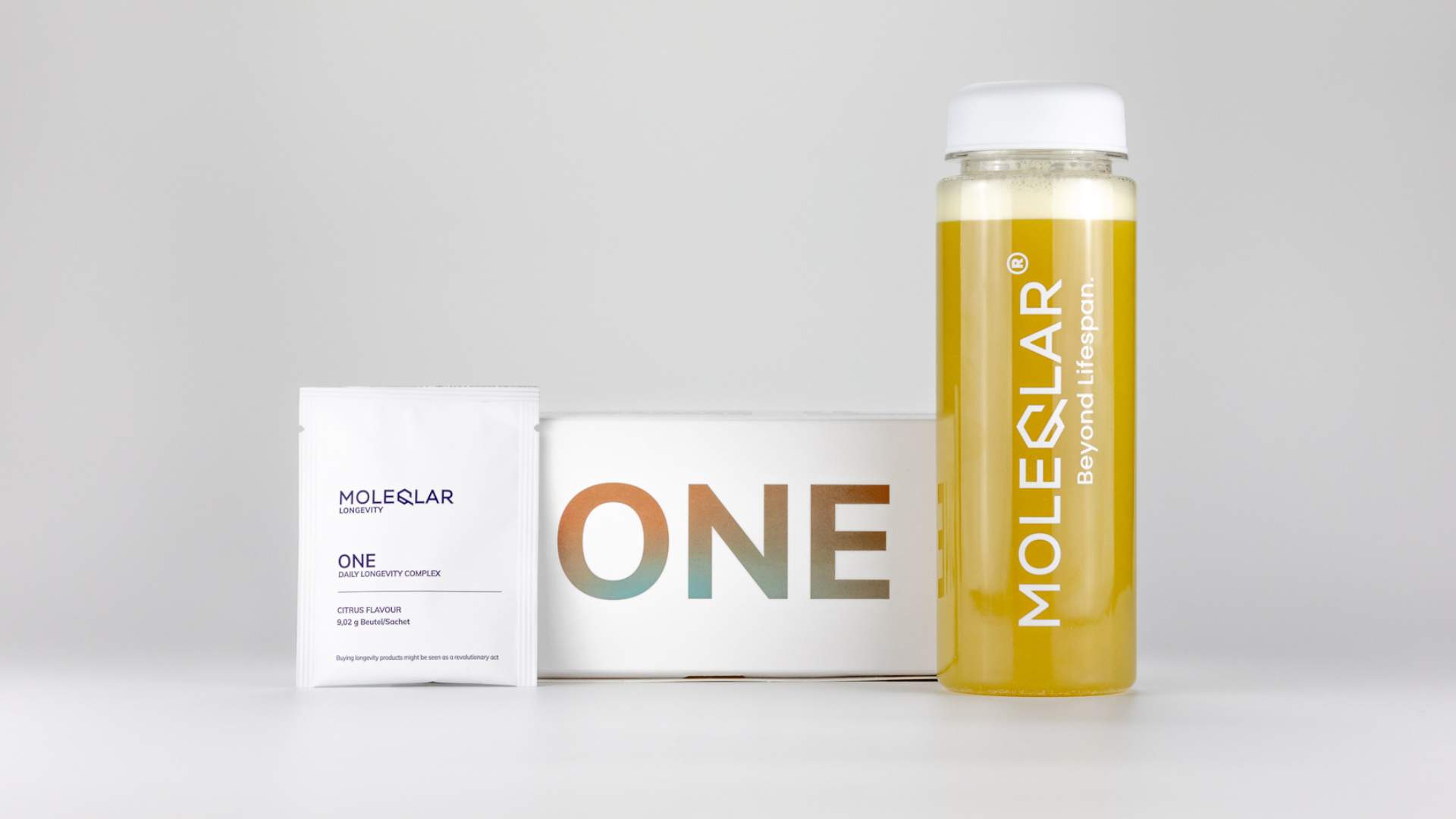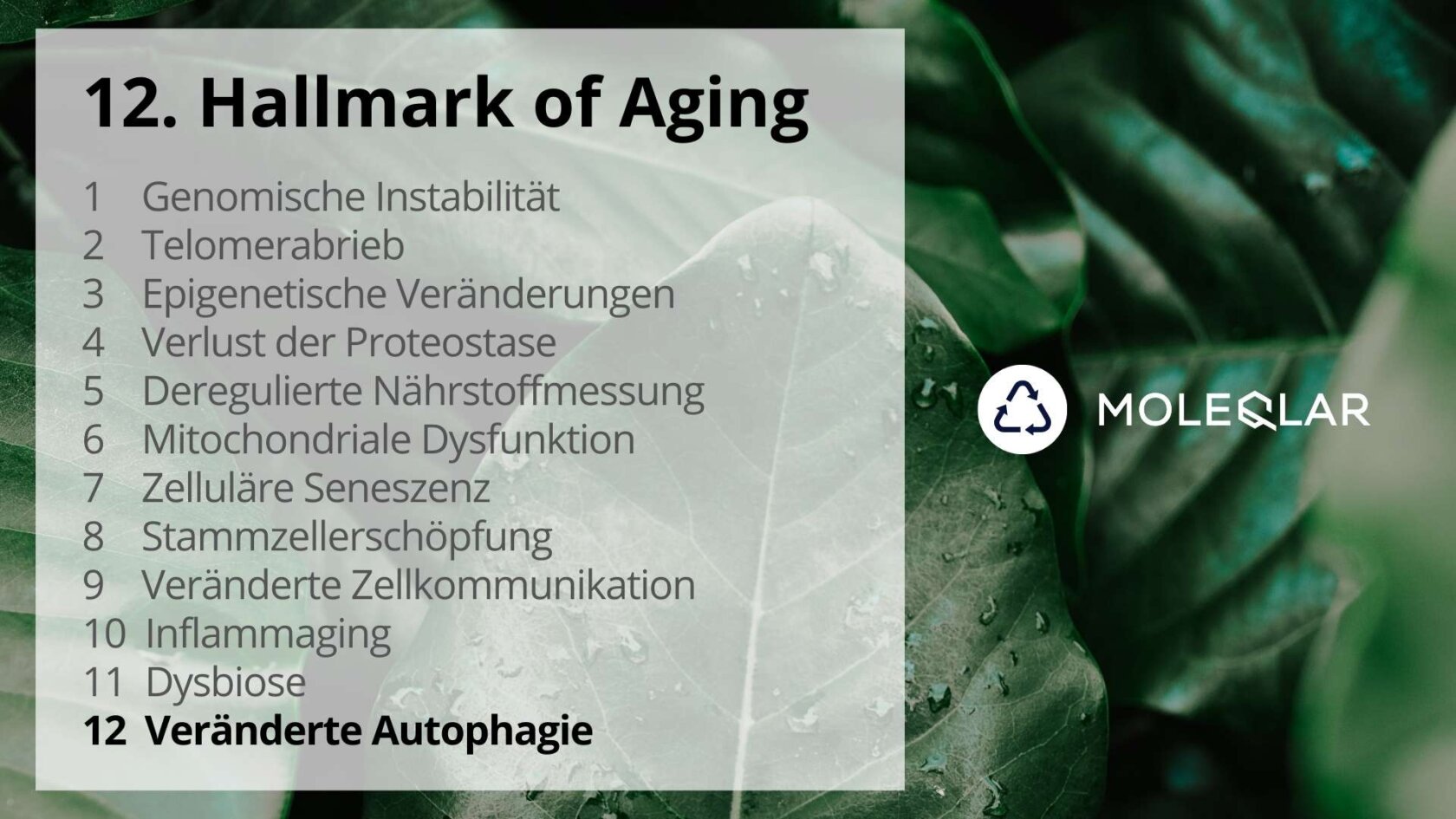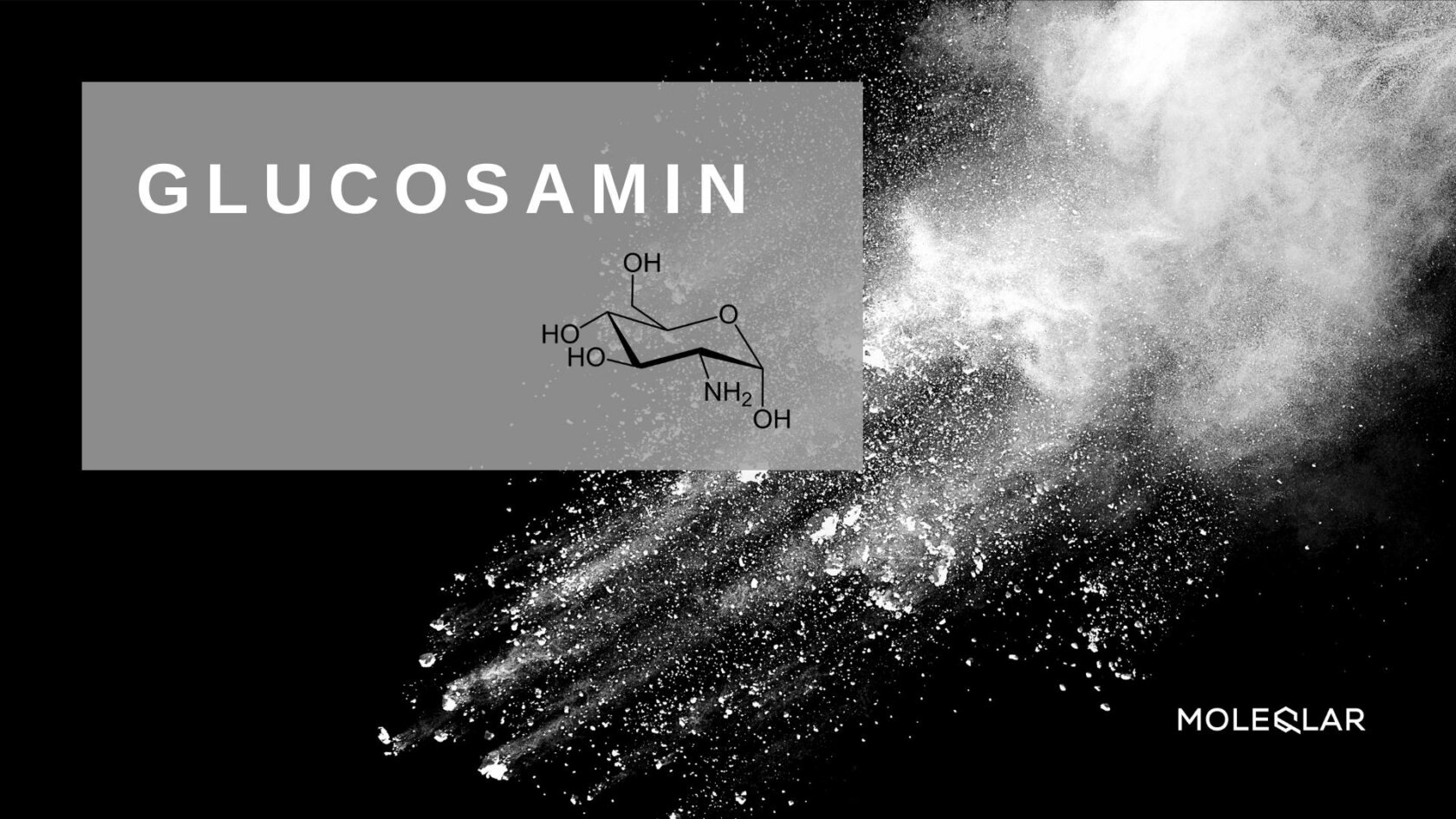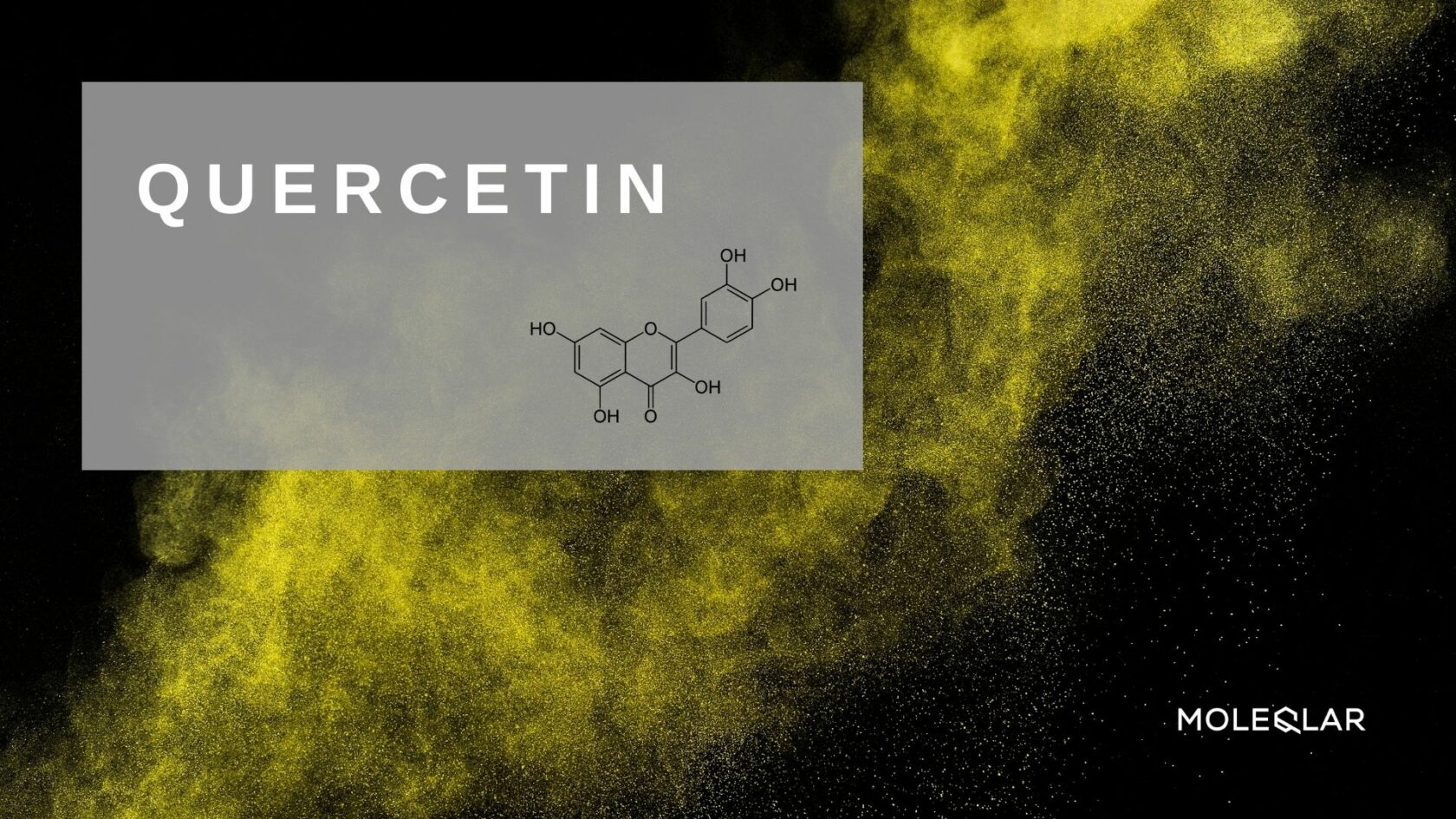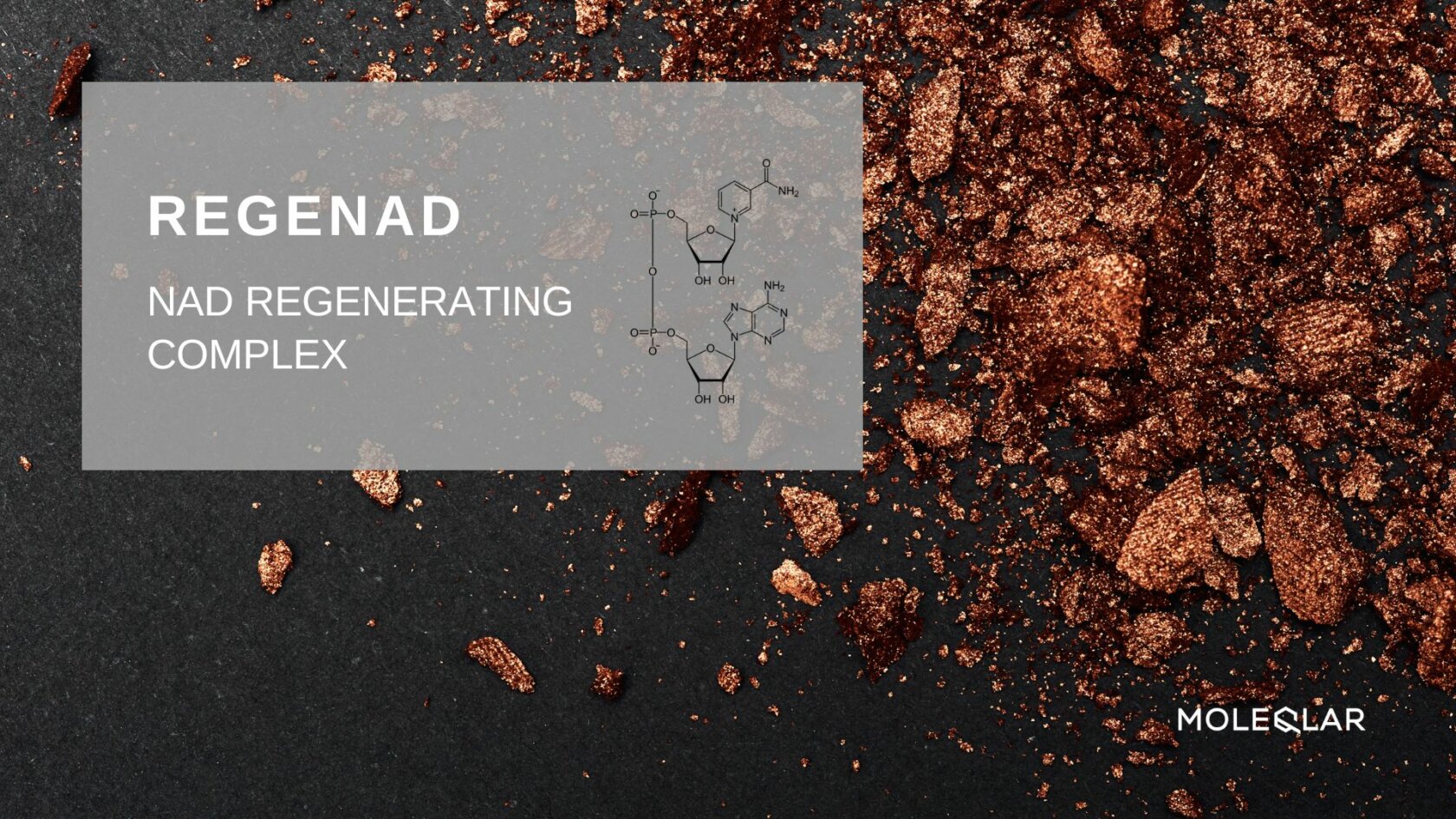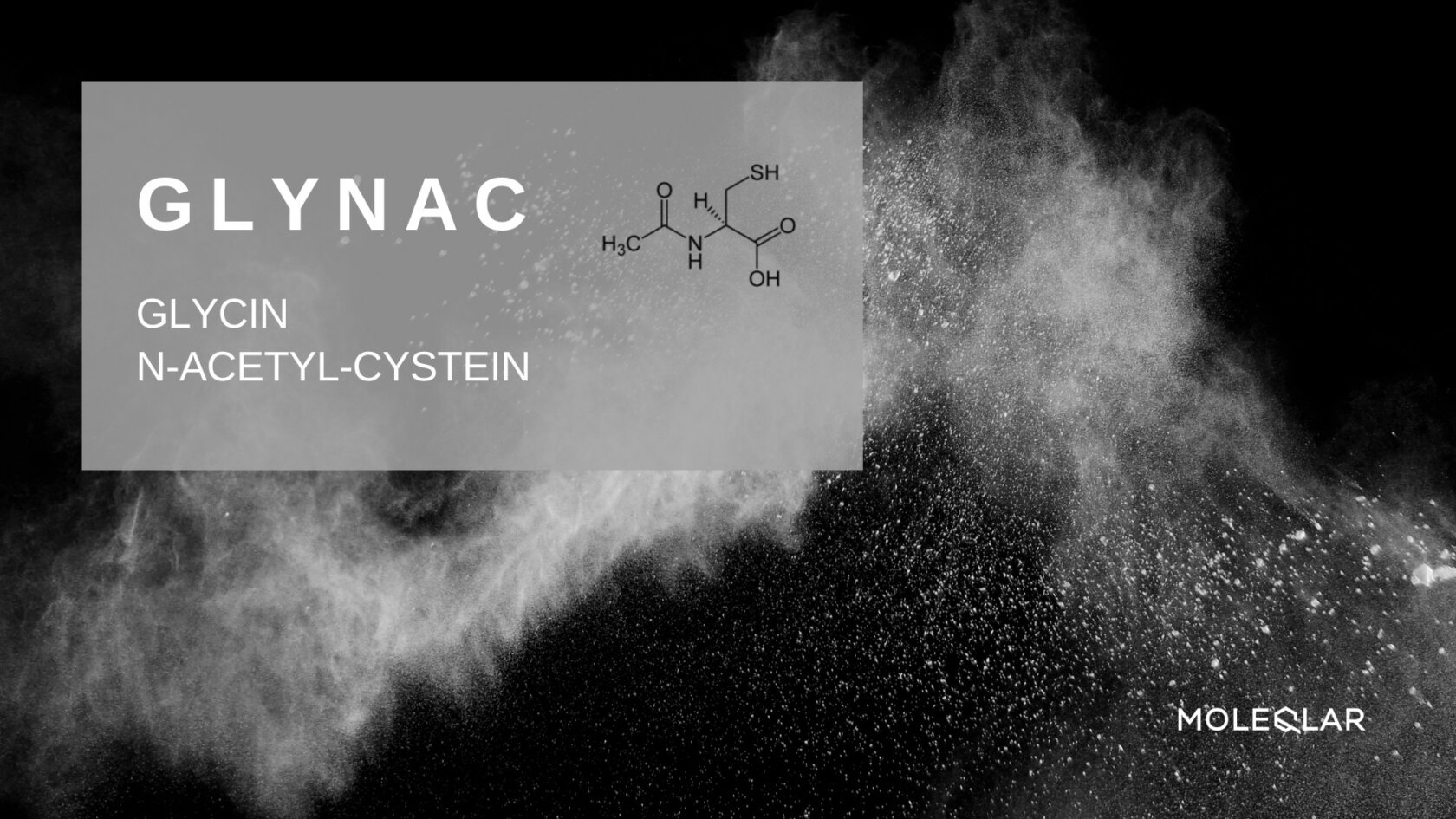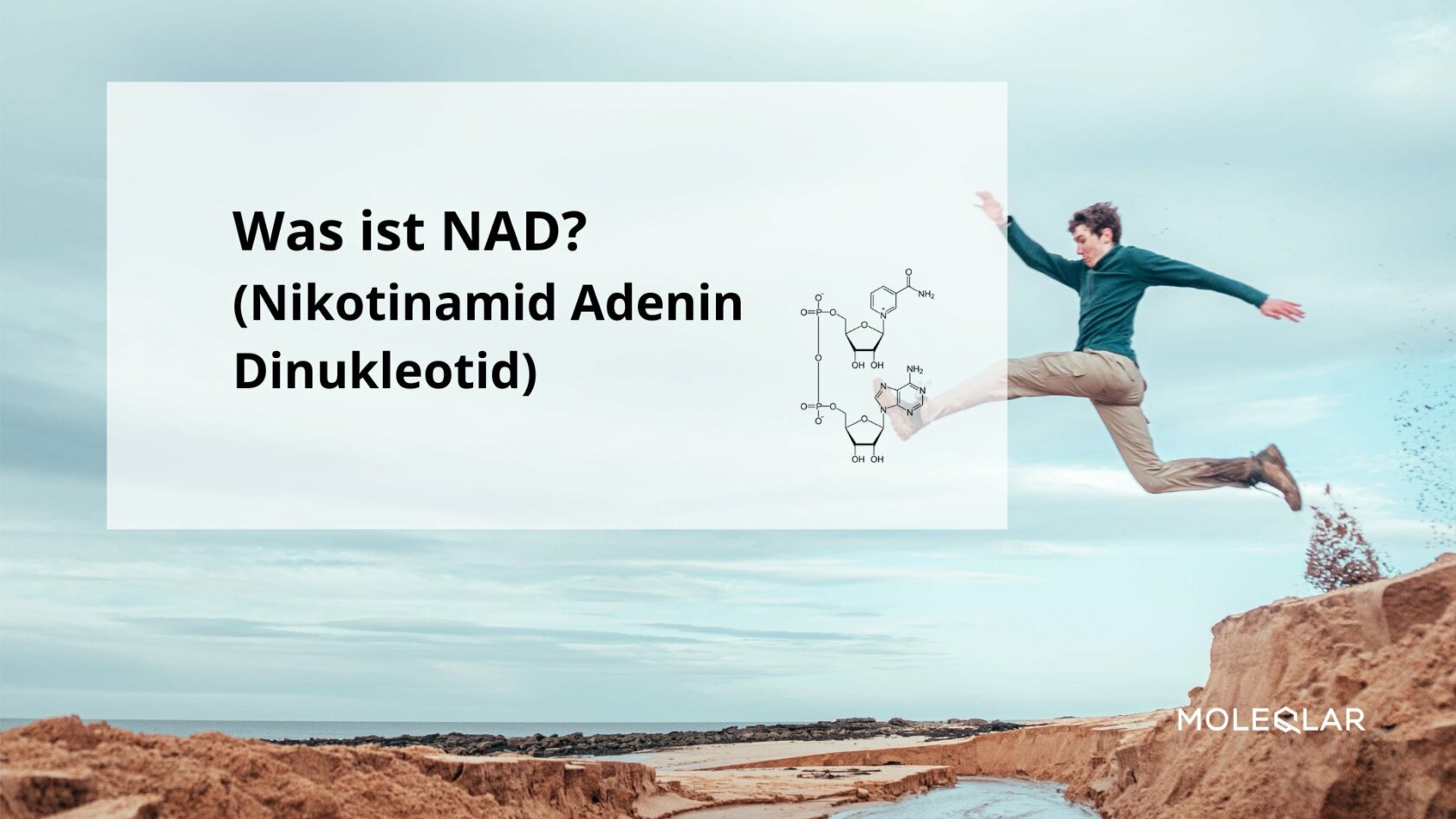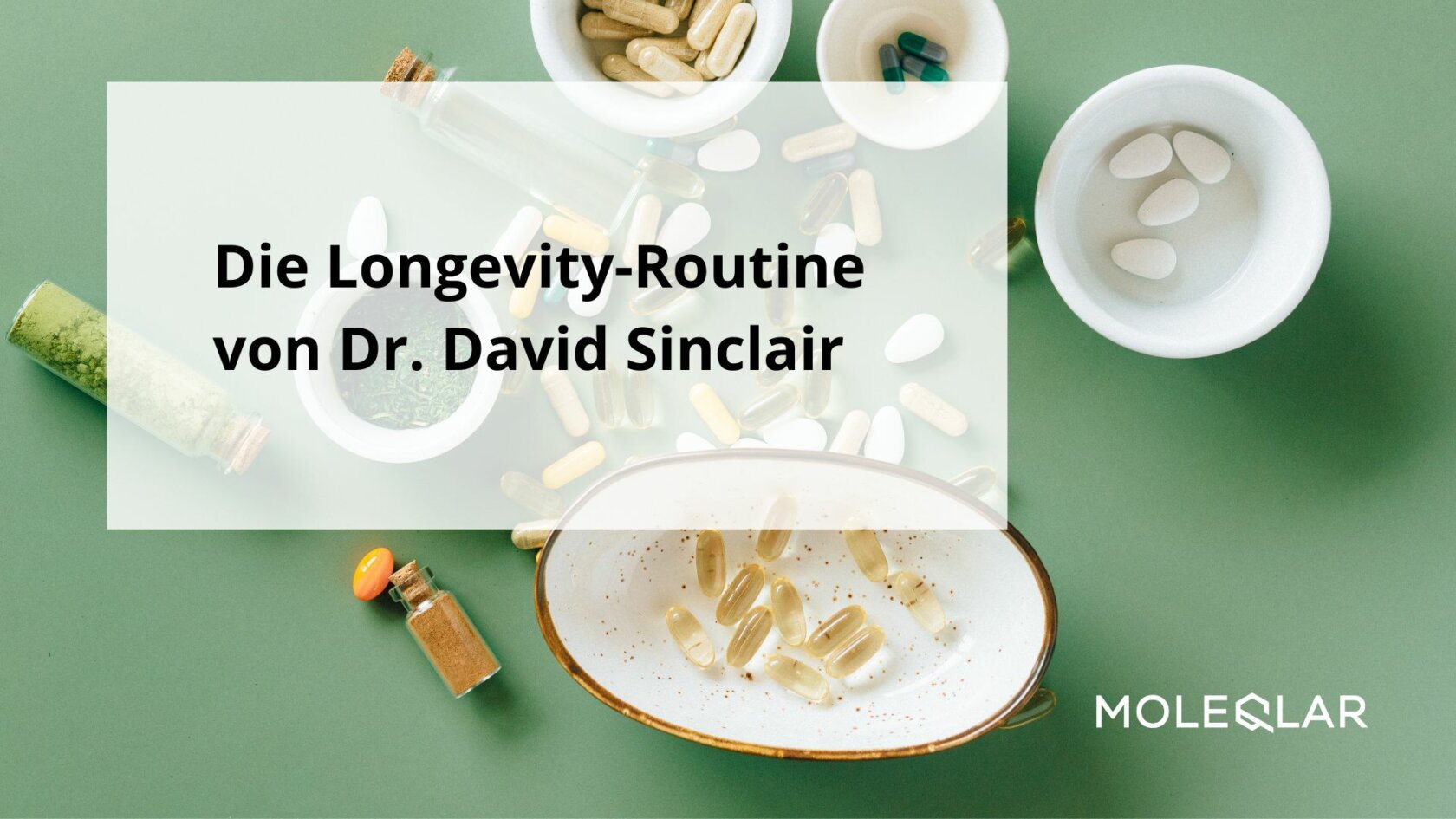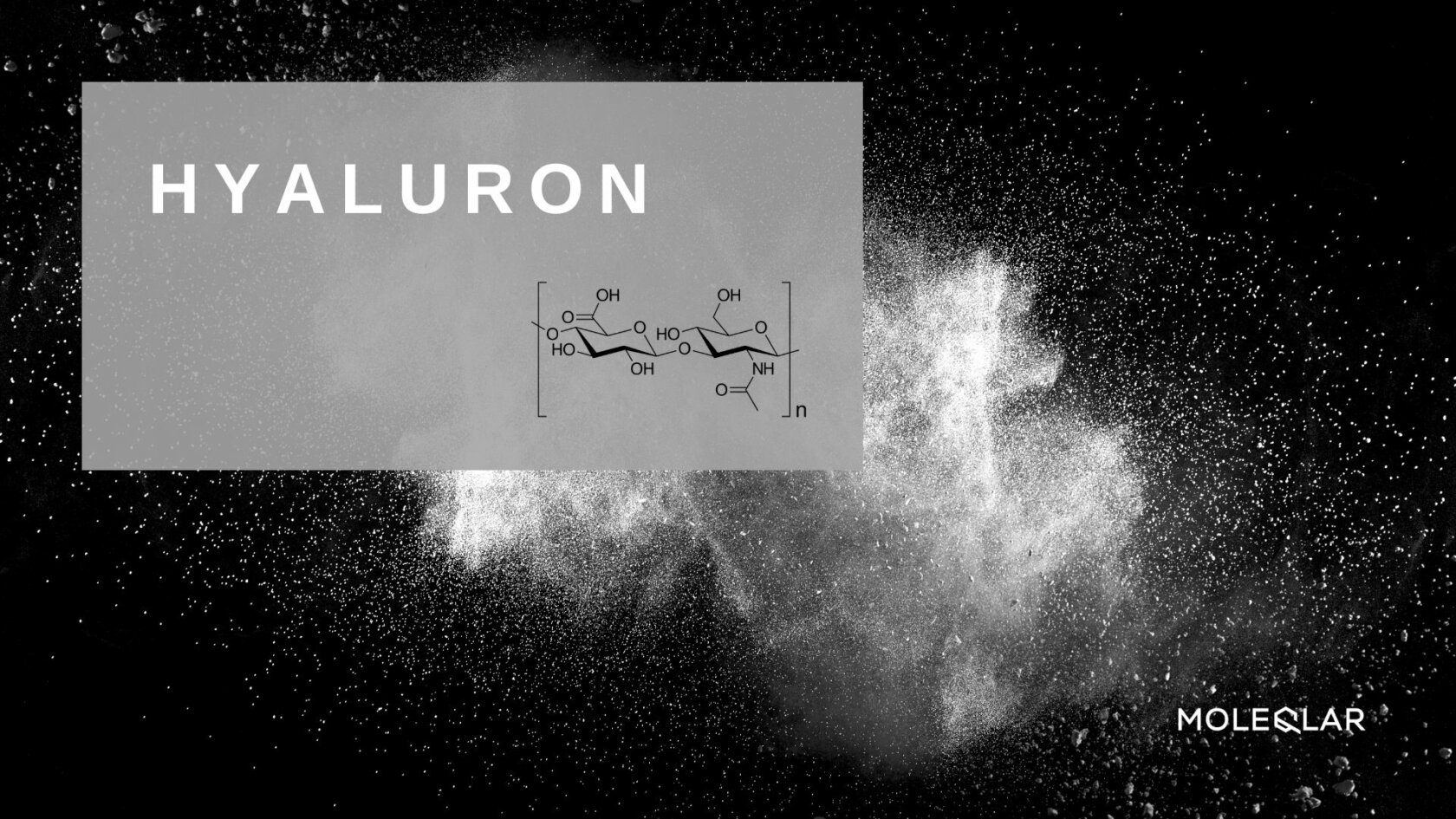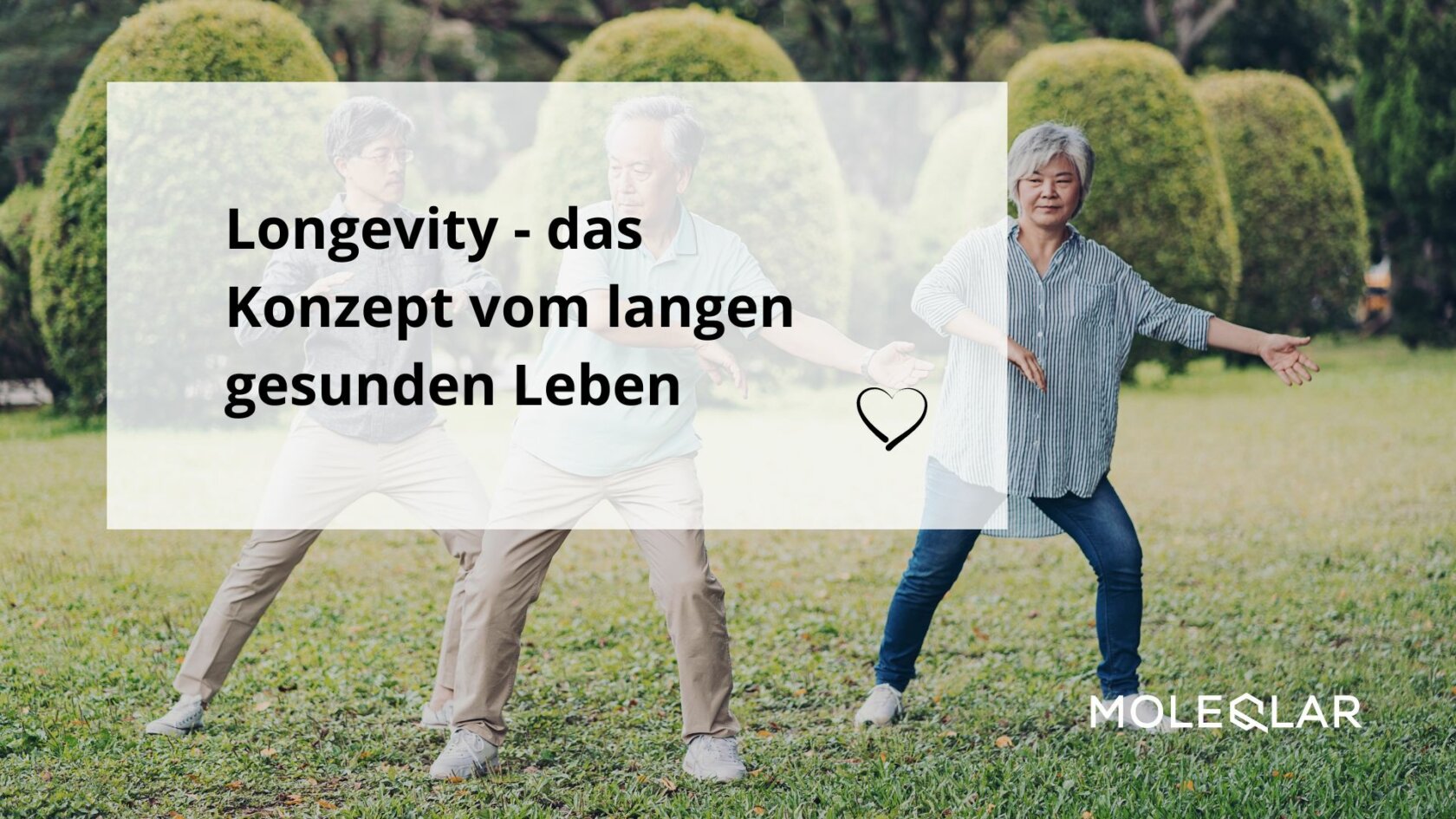Every human being has billions of them: Mitochondria - also known as the power plants of our cells. But what role do they play in terms of longevity? And can I strengthen my mitochondria? You can find out all about this in this MoleQlar article.
What are mitochondria?
Mitochondria are cell organelles in our body that, among other things, regenerate what is known as adenosine triphosphate (ATP). ATP serves as a universal energy carrier in our cells. This is why the mitochondria are also known as the "power plants of the cells". For this reason, cells that consume a lot of energy - such as heart, muscle or nerve cells - contain significantly more mitochondria than other cells. In a heart muscle cell, mitochondria make up around a third of the cell volume. Your heart beats because of these little power stations, so to speak. But the ageing process also changes our mitochondria. Science shows that damaged mitochondria are linked to many diseases such as Alzheimer's, diabetes and cancer. Forthis reason, there are many attempts to prevent, stop or even reverse the deterioration process through so-called mitochondrial therapy. Find out what you can do every day to strengthen your mitochondria.
Did you already know? The body's own power plants have a special feature: they possess their own DNA, the so-called mtDNA (from mitochondrial DNA), which swims around in a ring inside the mitochondrion. However, this does not allow them to reproduce independently. The mitochondrial genome in humans comprises only 37 genes. For comparison: the DNA in the cell nucleus contains the information for 20000-25000 genes. Moreover, mitochondria are only passed on from mother to offspring.

What is the role of mitochondria with respect to longevity?
Mitochondria play an essential role in longevity. The so-called "mitochondrial dysfunction" is one of the Hallmarks of Aging. But before we go into what you can do to strengthen your mitochondria, let's briefly look at the function of the special cell organelles themselves. This will help you understand why you should strengthen your mitochondria. As you know, energy is produced and supplied in the mitochondria. This process is called cellular respiration and takes place via the respiratory chain - an interaction of 5 protein complexes that form an electron transport chain.
Electrons (negatively charged particles) therefore play an important role in the energy production process. At the beginning of the respiratory chain is the molecule NADH, which can release two electrons as part of the energy production process. This ultimately produces ATP and the "waste product" NAD+. NAD+ is nothing other than the molecule NADH, only one proton (positively charged particle) and two electrons poorer. To cut a long story short: energy production in our cells consists of splitting off the electrons contained in food. Energy is then released during this process. High NAD+ levels mean that a lot of NADH is converted to ATP, meaning that the cell is able to produce a lot of energy. This is a good sign. NAD+ subsequently activates sirtuinsa group of genes that are associated with longevity. The NAD+ level decreases with age. This is precisely the link between the mitochondria, the NAD+ level and the ageing process.
How can I strengthen my mitochondria?
There are a few ways to strengthen your mitochondria on a daily basis. Let's take a closer look at a few of them.
Boost your mitochondria with sports & exercise!
Probably the most commonplace "hack" to strengthen your mitochondria is to move more. Studies show that more physical activity boosts the formation of mitochondria in muscle cells. This is one of the reasons for the positive effect of sport on the body. But it is not only the powerhouses in the muscle cells that are strengthened by exercise: studies show that exercise also increases the biogenesis of mitochondria in the brain. This could also explain possible positive effects on neurodegenerative diseases. Dementia in particular is associated with mitochondrial dysfunction - and older people in particular often do not get enough exercise.
Our tip: Accumulate at least your 10,000 steps a day to boost mitochondrial production in your body. Regular times for walking can help you reach this daily goal.
Proper nutrition as a known trump card!
The next tip for strengthening your mitochondria is to optimize your diet. Of course, it is important to supply your body with all the important nutrients. Your mitochondria also need certain cofactors to function optimally. Key substances for mitochondrial health include copper, zinc, selenium and vitamins A, C and E. Studies also show that coenzyme 10 can have a positive effect on our mitochondria. It is therefore important to eat a balanced and varied diet. It also makes sense to supplement certain nutrients if you need them. Make sure that you are optimally supplied with all the important nutrients. Taking certain supplements can also have a positive effect on your mitochondria. For example, here are the top 5 supplements you should take when needed.
The body also reacts to environmental influences such as hunger with certain internal metabolic processes. In the course of human history, it was normal that we sometimes had nothing to eat. Scientists have discovered that dietary patterns such as fasting or calorie restriction have a positive effect on our mitochondria, among other things. One example of a fasting protocol is provided by the American scientist Valter Longo with his mock fasting diet. Another, less researched approach is the sirtfood diet.
Our tip: Eat plenty of fruit, vegetables, wholegrain products, nuts and ideally plant-based sources of protein (higher nutrient density, more fiber) and substitute some critical nutrients if necessary to ensure you are optimally supplied. You can also try intermittent fasting from time to time.

Boost mitochondria with cold!
Studies show that cold strengthens the mitochondria. This effect is based on an increased expression of PGC-1α - a key protein in mitochondrial production. Furthermore, scientific studies show that chronic exposure to cold accelerates autophagy. So there could be some practical benefits here for any longevity hacker.
Our tip: You can boost your mitochondria daily with cold showers or occasional ice baths. More studies on this will probably be published soon. Especially the field of cryotherapy is very interesting and promising.
By the way: Did you know that some people can be frozen in order to be thawed out again in the future and then revived? Sounds crazy? But it is. You can find out more about this under the keyword cryopreservation.
Conclusion
Our mitochondria are essential for the smooth functioning of our body's energy metabolism. We can boost them through our diet, cold, sport and exercise, among other things.
Literature:
- Steiner JL, Murphy EA, McClellan JL, Carmichael MD, Davis JM. Exercise training increases mitochondrial biogenesis in the brain. J Appl Physiol (1985). 2011 Oct;111(4):1066-71. link
- Rodríguez-Cano AM, Calzada-Mendoza CC, Estrada-Gutierrez G, Mendoza-Ortega JA, Perichart-Perera O. Nutrients, Mitochondrial Function, and Perinatal Health. Nutrients. 2020 Jul 21;12(7):2166. link
- Lettieri-Barbato D, Cannata SM, Casagrande V, Ciriolo MR, Aquilano K. Time-controlled fasting prevents aging-like mitochondrial changes induced by persistent dietary fat overload in skeletal muscle. PLoS One. 2018 May 9;13(5):e0195912. Link
- Chung N, Park J, Lim K. The effects of exercise and cold exposure on mitochondrial biogenesis in skeletal muscle and white adipose tissue. J Exerc Nutrition Biochem. 2017 Jun 30;21(2):39-47. link
- Winifred W. Yau, Kiraely Adam Wong, Jin Zhou, Nivetha Kanakaram Thimmukonda, Yajun Wu, Boon-Huat Bay, Brijesh Kumar Singh, Paul Michael Yen, Chronic cold exposure induces autophagy to promote fatty acid oxidation, mitochondrial turnover, and thermogenesis in brown adipose tissue, iScience, Volume 24, Issue 5, 2021. link
Graphics:
The images were purchased under licence from Canva.


